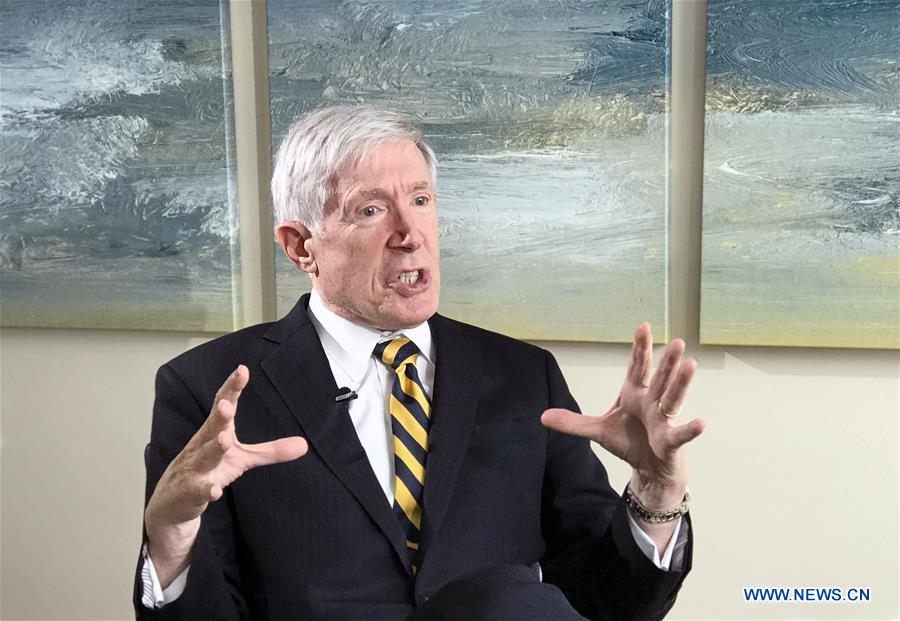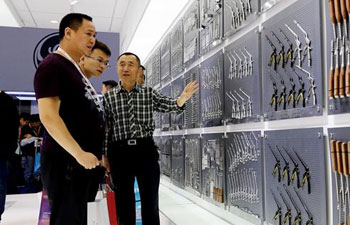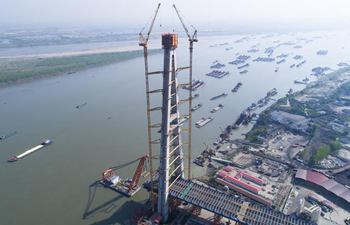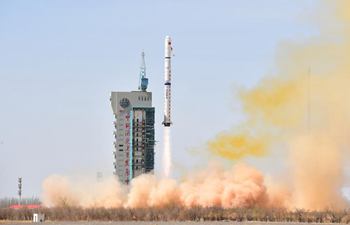
Robert Hormats, former U.S. undersecretary of state, receives an interview with Xinhua in New York April 5, 2018. He said that U.S. President Donald Trump's administration lacked a "coherent strategy" in tackling trade differences with its largest trading partner China. (Xinhua/Zhang Mocheng)
NEW YORK, April 11 (Xinhua) -- U.S. President Donald Trump's administration lacks a "coherent strategy" in tackling trade differences with its largest trading partner China, a former senior U.S. official has said.
"Being tough is one thing, but being tough with a strategic sense of how to move ahead is quite another," said Robert Hormats, former undersecretary of state under the Obama administration, in an interview with Xinhua on Trump's tariff sanction plans against China.
After proposing steep tariffs on Chinese imports worth 50 billion U.S. dollars, the Trump administration has threatened to slap additional duties on Chinese goods worth 100 billion dollars. China has hit back proportionally by rolling out its retaliatory tariff plan.
"Tough positions without a strategic process of working out differences and coming to some conclusions that are mutually beneficial, is really not a sufficient strategy for moving forward," said Hormats, now Vice Chairman of the New York-based consulting firm Kissinger Associates. "And that's really what seems to be either missing or if it's there, it's very unclear what it is."
The world's two largest economies are "not really in a trade war yet," he said. "There is still a possibility of negotiating some kind of arrangements that will prevent the further escalation of trade actions against one another."
"I think we're in a situation where each side is showing that it has the ability to take tough actions, and is willing to do it, but it has not escalated to the point of an all-out trade war," he said.
The senior diplomat noted a full-blown U.S.-China trade war will be destructive to the two countries' economic stability and the global growth as well.
For example, Hormats said, American farmers and their soybeans, sorghum and other products, depend very heavily on the China market.
Silicon Valley and other high tech companies also depend heavily on the China market, and a number of U.S. companies depend on components coming from China to make the final product, he added.
"So trade is not, you know, a good beating ... this network of interdependency is something that I don't think Trump really has an experience in dealing with or really very much knowledge about," Hormats said.















